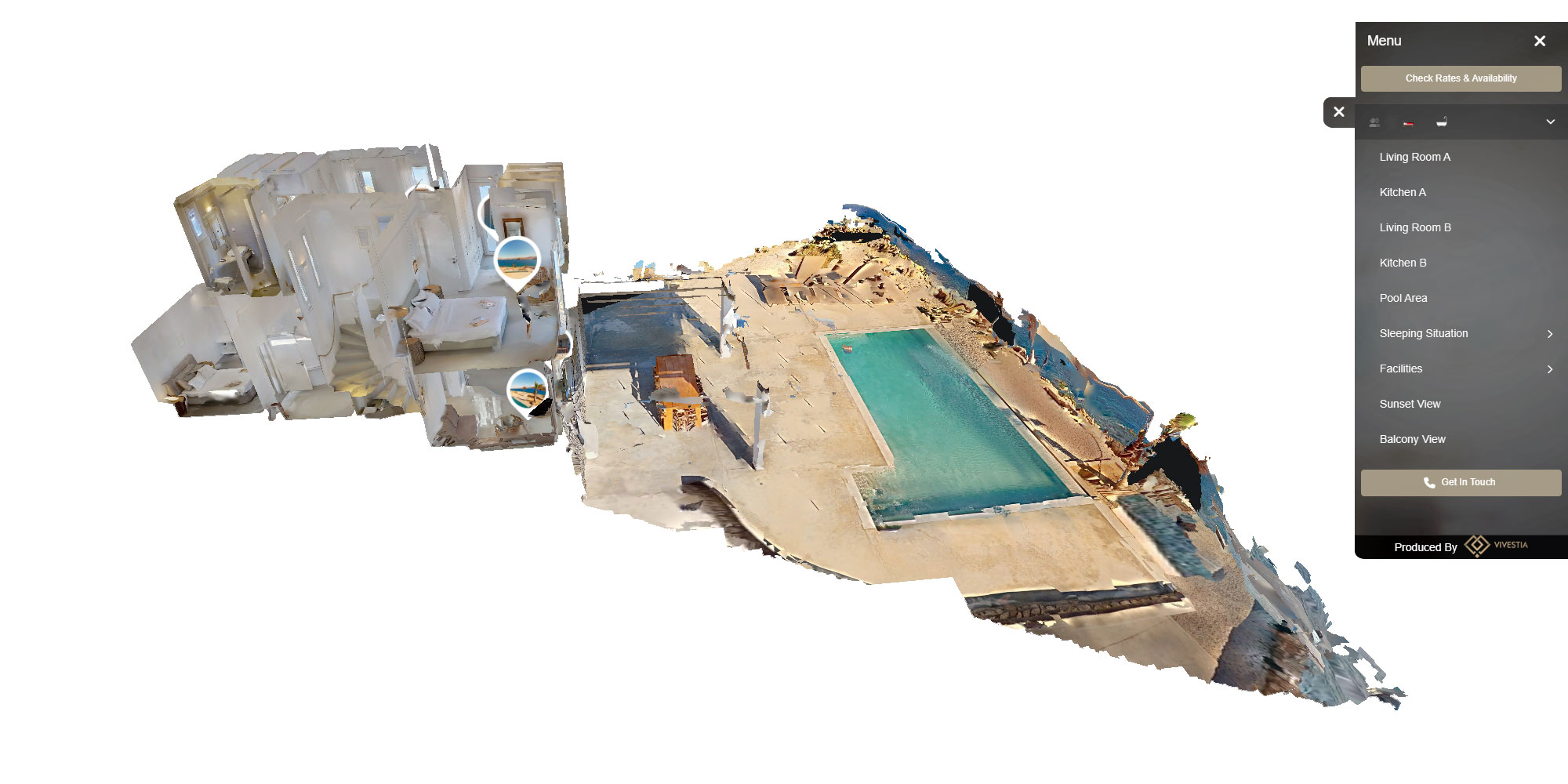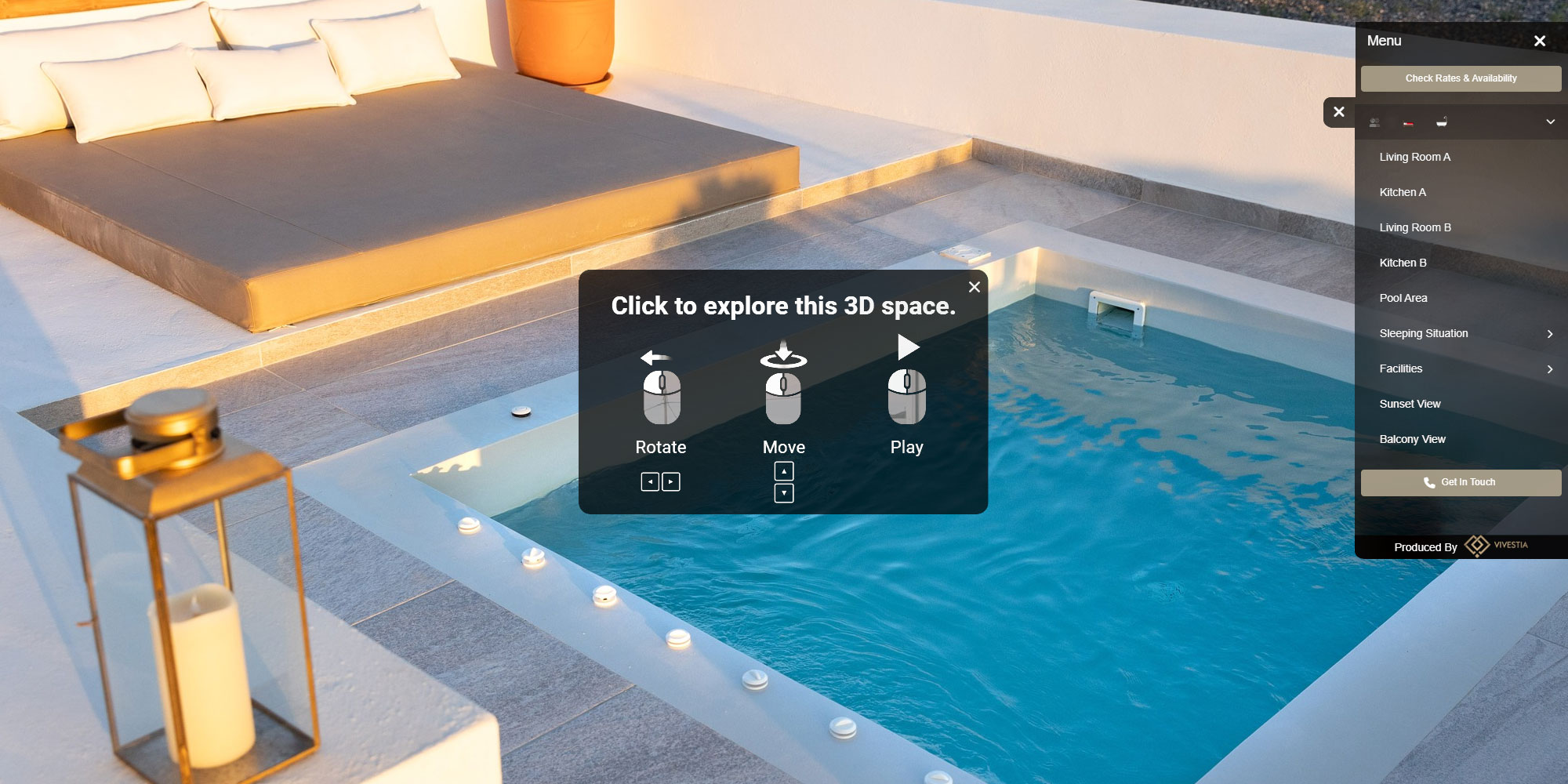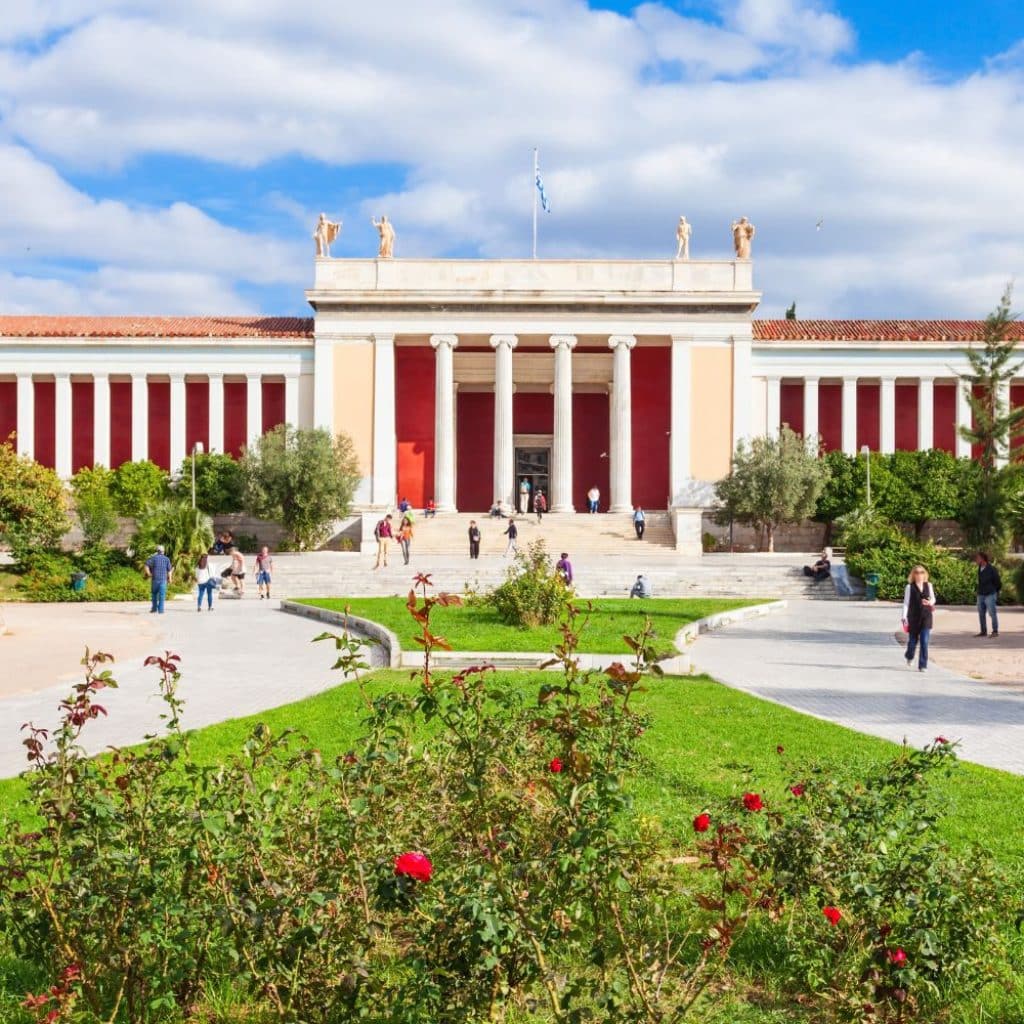Last Updated on 28/12/2023 by Manolis Maragkoudakis
How Virtual Tours are Redefining Hospitality?

The evolution of hotel experiences
In the ever-changing landscape of the hospitality industry, hotels are constantly seeking new ways to provide memorable experiences for their guests. From luxurious amenities to personalized services, hotels have always strived to differentiate themselves from their competitors. However, with the rise of technology and the increasing demand for immersive experiences, hotels are now turning to virtual tours as a means to elevate hospitality to new heights.
Understanding immersive hotel experiences
Immersive hotel experiences are all about creating a sense of escapism for guests. It involves transporting them to a different world, where they can fully immerse themselves in the hotel’s unique atmosphere. Whether it’s a beachfront resort or a cozy boutique hotel, the goal is to make guests feel like they have stepped into a different reality, where their every need is catered to.
Traditionally, hotels have relied on physical elements such as interior design, lighting, and music to create this immersive experience. While these elements are still important, virtual tours take it to the next level.
By using cutting-edge technology such as virtual reality (VR) and 360-degree imaging, hotels can now offer guests a virtual tour of their property, allowing them to explore every nook and cranny without leaving the comfort of their homes.
The role of virtual tours in hospitality
Virtual tours have revolutionized the way hotels showcase their properties to potential guests. Instead of relying on static images or videos, virtual tours provide a fully interactive experience that allows guests to virtually walk through the hotel, explore the rooms, amenities, and even the surrounding areas.
This level of immersion not only gives guests a better understanding of what to expect but also helps them make more informed decisions when it comes to booking their stay.
Furthermore, virtual tours allow hotels to tell a story. They can highlight the unique features and offerings of their property, showcase the attention to detail in their design, and create an emotional connection with potential guests. By providing a glimpse into the hotel experience, virtual tours can pique the interest of travelers and convince them to choose one hotel over another.
Benefits of virtual tours for hotels
One of the key benefits of virtual tours for hotels is increased visibility and reach. In today’s digital age, most travelers turn to the internet when researching and booking their accommodations.
By having a virtual tour, hotels can capture the attention of these potential guests and stand out from the competition. Not only does this lead to increased website traffic, but it also increases the likelihood of direct bookings.
Virtual tours also save time and resources for both hotels and guests. Instead of scheduling multiple site visits or spending hours browsing through photos and descriptions, guests can simply take a virtual tour to get a comprehensive view of the property. This not only saves them time but also eliminates any potential disappointment or surprises upon arrival.
Additionally, virtual tours improve transparency and trust. By allowing guests to explore every aspect of the hotel, including the rooms, amenities, and common areas, hotels can build trust and credibility with their potential guests. This transparency helps set realistic expectations and ensures that guests have a positive experience during their stay.
How to create a compelling virtual tour for your hotel
Creating a compelling virtual tour starts with careful planning and attention to detail. Here are some key steps to follow:
Choose the right technology: There are various options available for creating virtual tours, such as VR cameras, 360-degree cameras, or even outsourcing the process to professional virtual tour companies. Research and choose the option that best fits your hotel’s needs and budget.
Highlight the unique features: Identify the unique selling points of your hotel and make sure to highlight them in the virtual tour. Whether it’s a stunning view, a state-of-the-art spa, or a rooftop pool, showcase these features to captivate potential guests.
Pay attention to lighting and staging: Just like in traditional photography, lighting plays a crucial role in the quality of virtual tours. Make sure to properly light each area to showcase the ambiance and atmosphere of the hotel. Additionally, pay attention to staging and make sure each area is clean, organized, and visually appealing.
Provide a seamless user experience: A virtual tour should be easy to navigate and provide a seamless user experience. Make sure to include clear navigation options, interactive hotspots that provide additional information, and an intuitive interface that allows users to move around effortlessly.
Optimize for mobile devices: With the increasing use of mobile devices, it’s crucial to optimize your virtual tour for mobile viewing. This means ensuring that the tour is compatible with various screen sizes and loads quickly on mobile devices.
Measuring the impact of virtual tours on hotel bookings
While it’s clear that virtual tours have numerous benefits for hotels, it’s important to measure their impact on actual bookings. One way to do this is by tracking website analytics to see how many visitors are engaging with the virtual tour and whether it leads to an increase in direct bookings. Additionally, guest feedback and reviews can provide insights into the influence of virtual tours on the decision-making process.
Another effective way to measure the impact is through A/B testing. By creating two versions of a hotel listing, one with a virtual tour and one without, hotels can compare the conversion rates and booking numbers to determine the impact of the virtual tour.
Conclusion: Embracing virtual tours for a competitive advantage in the hospitality industry
Virtual tours have transformed the way hotels showcase their properties and provide immersive experiences for their guests. By leveraging technology and creating compelling virtual tours, hotels can elevate hospitality to new heights and differentiate themselves in a competitive industry.
From increased visibility and reach to improved transparency and trust, virtual tours offer numerous benefits for hotels. By embracing this technology, hotels can captivate potential guests, increase direct bookings, and provide a memorable and immersive experience that sets them apart from the competition.
In conclusion, virtual tours are no longer just a novelty; they are becoming an essential tool in the hospitality industry. By embracing this technology, hotels can redefine hospitality and provide guests with an unforgettable experience that will keep them coming back for more.






Post Discussion